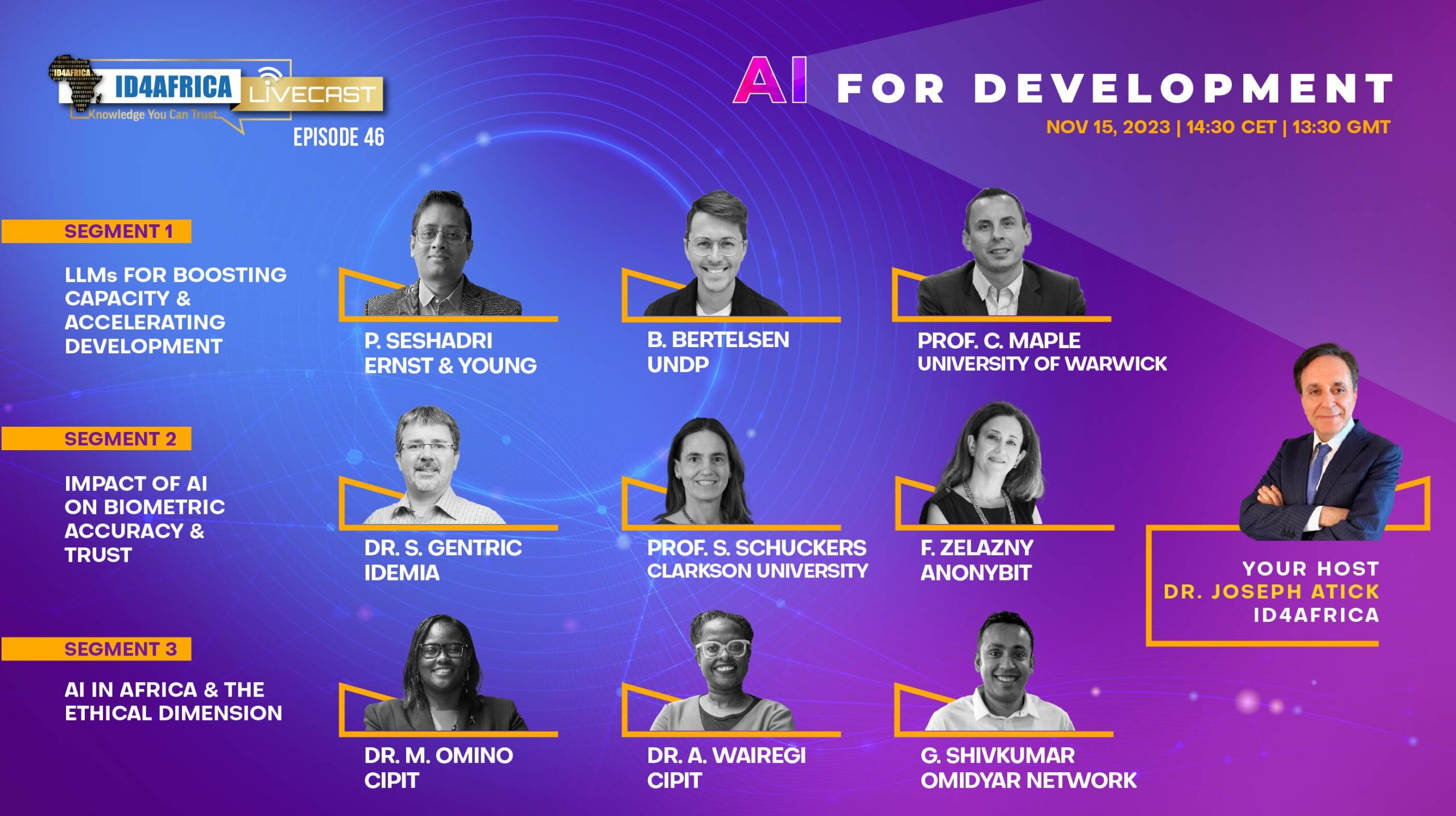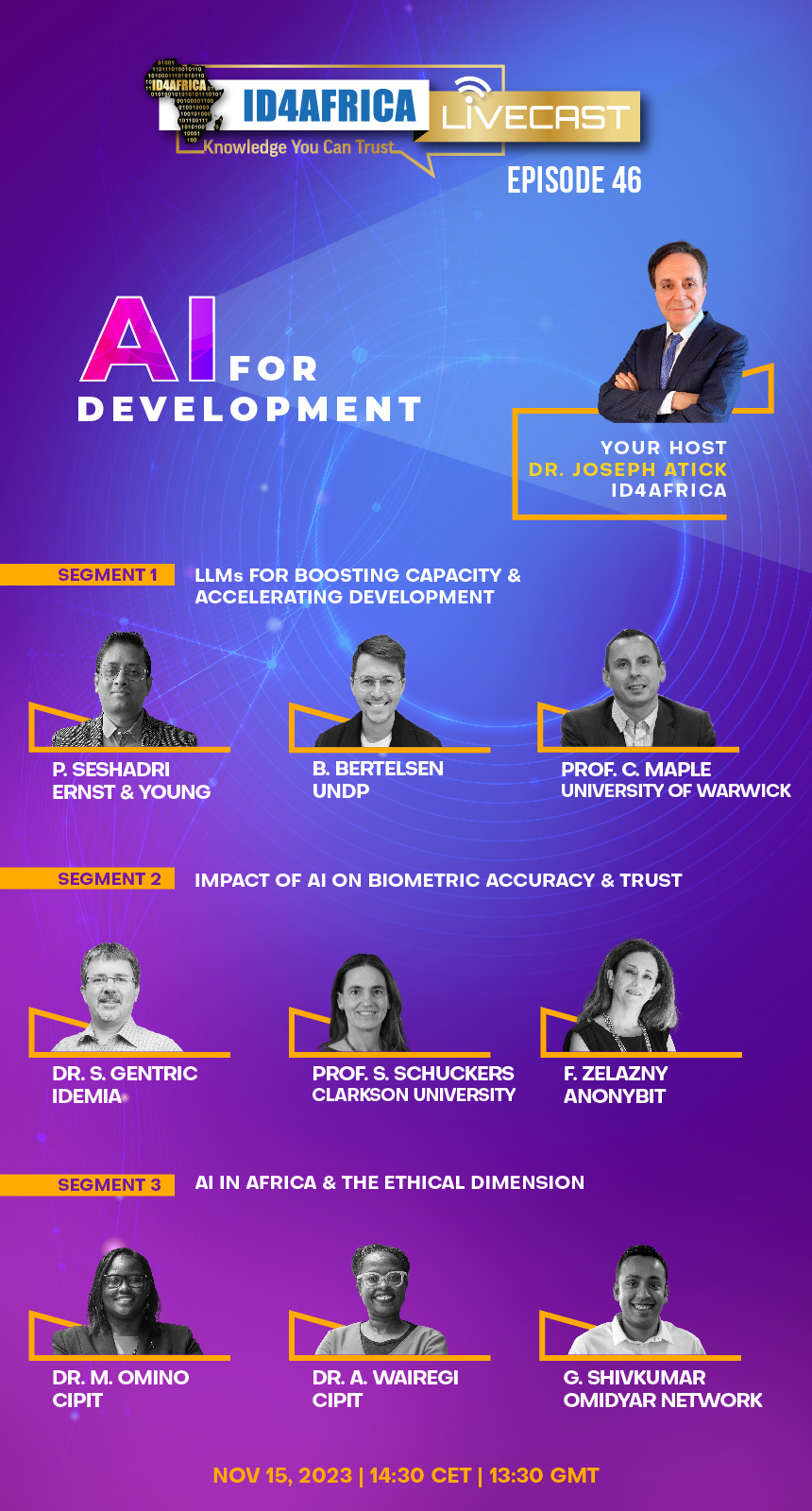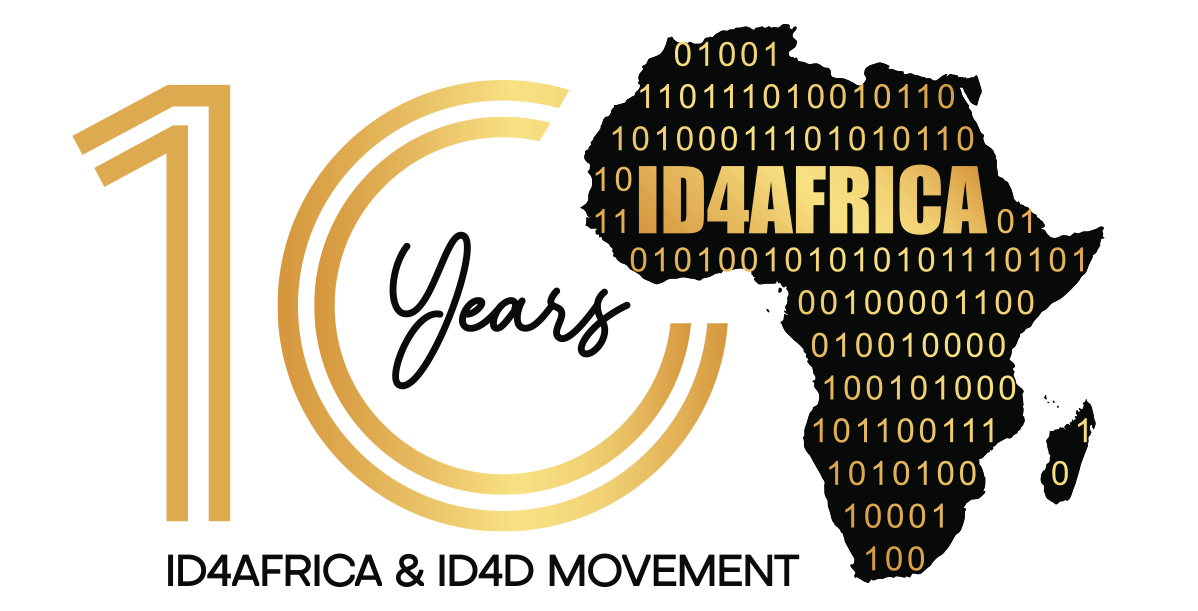

- Nov 15, 2023
- 13:30 GMT
- Add to Calendar
- English & French
- Free of charge
- Space limited!
Share this LiveCast!

Previous episodes:
JOIN US FOR A GROUNDBREAKING LIVECAST FOCUSED ON:
The impact of AI on digital identity development
Generative Artificial Intelligence refers to artificial intelligence (AI) systems that generate content, such as text, audio, or video, aiming to produce novel and creative outputs based on training data. Generative AI applications such as ChatGPT have captured the world’s attention due to their ability to create and communicate. Their ability to have conversations with users, especially, has generated global headlines. The world is now grappling with the impact generative AI is likely to have on economies, political structures, and society at large. For example, the ChatGPT platform is already significantly impacting the educational sector where artificial intelligence, and in particular ChatGPT, has been highlighted for its ability to improve a student’s academic performance and foster the development of critical thinking. Generative AI may also have the potential to revitalize the workforce by upskilling or reskilling potential workers – providing them with the specialized skills required in areas such as health care or teaching, where there are plenty of jobs.
However, the benefits of generative artificial intelligence are not equally accessible to all, especially in developing countries, where limited access to cutting-edge technologies and inadequate infrastructure pose challenges.
In this episode, we will explore the potential impact of generative AI technologies on developing countries, focusing on both positive and negative effects. Additionally, we will discuss the challenges facing African countries’ in leveraging generative AI to solve some of the intractable problems.
COME AND GAIN INSIGHTS FROM FRONTLINE RESEARCHERS & THOUGHT LEADERS AS THEY DISCUSS THE FOLLOWING MATTERS FROM ALL ANGLES:

AI (Generative, LLMs & Deep Learning) brings a whole host of new capabilities that can accelerate development and improve performance. Training AI on identity specific data (including technical documentation) has created valuable tools that can be used for:
– Rapid knowledge assimilation for quicker onboarding & upskilling.
– Accelerated code development & customization.
– Simplified system support.
– Dynamic content generation.
In addition to
– Game-changing improvements in biometric accuracy.
–and much more!
THE BAD

The downsides of AI include:
– Deepfakes & spoofing attack vectors.
– Undermining of trust
– Algorithmic bias
Mitigations include:
– Detection of attack vectors.
– Improved training for bias elimination.
– Spoof-resistant trustworthy designs for ID systems
THE UNDEFINED
& the path to defining it

AI has profound and broad disruptive impact on society. Beyond the technological aspects, it is important to understand:
– Ethical implications
– Governance challenges
– Contextualizing the impact to the development agenda
– Understanding the state of AI in Africa

Dr. Joseph Atick
Executive Chairman ID4Africa
Dr. Joseph Atick is a recognized world renowned advocate and expert on identity matters. Having been one of the founders of the identity industry nearly 30 years ago, he led several companies in that domain and developed some of the foundational algorithms underlying secure digital identity today, including the first commercially viable face recognition algorithm.
Dr. Atick retired from the industry in 2010 to focus on promoting identity for social and economic development around the world. In that mission he partnered with the World Bank and other UN agencies, and was heavily involved in the development and field testing of the methodology and analytic tools that would guide the subsequent activities in that space, and would lead to the launch of the ID4D initiative at the World Bank.
In 2014, he co-founded ID4Africa as a pan-African Movement to promote responsible digital transformations through digital identity in Africa. He is a staunch defender of privacy, data protection and human rights and continues to provide counsel to governments and international organization on the use of identity for public good. Dr. Atick holds a Ph.D. in Mathematical Physics from Stanford University.
S1: LLMs for Boosting Capacity & Accelerating Development

Parankusha Seshadri
Director, Technology Consulting Ernst & Young

Benjamin Bertelsen
Product Specialist UNDP

Prof. Carsten Maple
Professor of Cyber Systems Engineering, WMG The Alan Turing Institute & The University of Warwick.

Dr. Stephane Gentric
Chief AI Scientist Idemia

Prof. Stephanie Schuckers
Professor
Clarkson University

Frances Zelazny
CEO
Anonybit
S3: AI in Africa & the Ethical Dimension

Dr. Melissa Omino
Director CIPIT

Dr. Angeline Wairegi
Interim Research Manager
CIPIT

Govind Shivkumar
Director, Responsible Technology
Omidyar Network
IN CASE YOU MISSED IT
EP45: UNDP & NIST Guidelines for Digital Identity & Its Governance
Our LiveCast EP45 presented one of the most impressive themes and line-ups in episode history! Titled “UNDP & NIST Guidelines for Digital Identity & Its Governance” this episode was characterised by deep, meaningful discussions, profound insights, invaluable guidelines, and expert recommendations from leading institutions, governments and CSOs.






